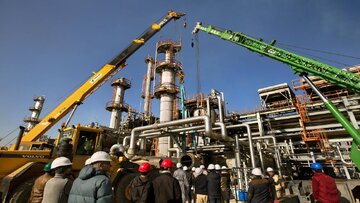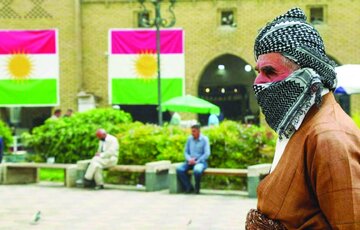Contrary to Turkey's triumphant view of developments in Syria, other Arab and non-Arab countries in the region are concerned about Turkey's role in the post-Assad developments. In the eyes of some countries in the region, Turkey is pursuing some interventionist policies that may sooner or later impose their costs on other countries in the region.
Turkey's role in Syrian developments
Turkey is the most important foreign power supporting the Syrian rebels. The country is geographically adjacent to the armed rebels-held territory in northwestern Syria, and the government of Erdogan was operating against the government of former Syrian President Bashar al-Assad since 2011. Turkey has also supported various Islamist groups during the Syrian civil war.
The most prominent Syrian armed rebel group, Hayat Tahrir al-Sham (HTS), formerly known as Jabhat al-Nusra, is a fundamentalist armed organization that shares many ideological similarities with ISIS. There are indications that the HTS received significant assistance from Turkey in the form of weapons and drones before its offensive.
Meanwhile, Turkey’s main ally among the armed rebels is a group called the Syrian National Army (SNA), which, despite its Syrian name, is a fully Turkish entity. Since the start of the war in Syria, the Turks have been most concerned about the emergence of an autonomous Syrian Kurdish state in northern Syria led by the Syrian Democratic Forces (SDF). The SDF, although a Syrian organization, has its roots in the Kurdish insurgency. It is currently stationed in northeastern Syria with about 900 American troops, and Turkey has been bombing them at times. For the Turks, one of the most important goals is to eliminate Kurdish SDF in northeastern Syria, and Turkey seems to be pursuing this goal through the Free Syrian Army (FSA).
Erdogan’s neo-Ottomanism
Many believe that Turkey has ambitious goals by directly supporting armed rebel groups in northern Syria and advancing these groups towards Damascus and the fall of al-Assad's government.
Alexander Swarantez, a professor of political science in Russia, enumerated the Turkish aims intervention in Syria:
1. Preventing the formation of an autonomous Kurdish region and eliminating the threat of Kurdish separatism in northern Syria and regions bordering the Kurdish-majority regions of Turkey 2) Creating a 30-kilometer security zone along the border in the northwestern regions of Syria by changing the ethnic composition of the population in favor of Turkmens and Sunnis. 3) Controlling transit routes for oil trade in northwestern Syria. 4) Pursuing the neo-Ottoman and neo-Pan-Turanism doctrine in the western Middle East 5) Building a gas pipeline from Qatar through Syria and Turkey to Europe.
Arabs worried eyes on Turkey
In post-Assad Syria, regional countries are very concerned about Turkish interventions in Syria. Indeed, many in the region are wondering whether neo-Ottomanism is making a comeback. The fall of al-Assad government and Turkey’s growing influence among the armed rebels in Syria have also sparked heated debate about the resurgence of neo-Ottoman political ideology and its implications for regional power dynamics.
Turkey's growing influence, particularly through its support for Islamists and factions affiliated with the Muslim Brotherhood, has raised concerns among Arab countries such as Saudi Arabia, the UAE, Egypt and Jordan, which have historically opposed Islamist movements within their borders and have taken many steps to suppress Muslim Brotherhood and Islamist groups. The ideological fragmentation of rebel groups could pose a threat to Arab countries.
From another aspect, the collapse of al-Assad government
can enable Ankara to establish a government aligned to its interests in
Syria. Still, the conflict of various rebel forces, which have little in
common except hostility towards the previous government, could lead to a
protracted conflict in Syria and risk further disintegration of Syria.
This situation would have far-reaching consequences for regional
stability and Turkish internal security, and would even bear direct
threats to Turkey.
/129





